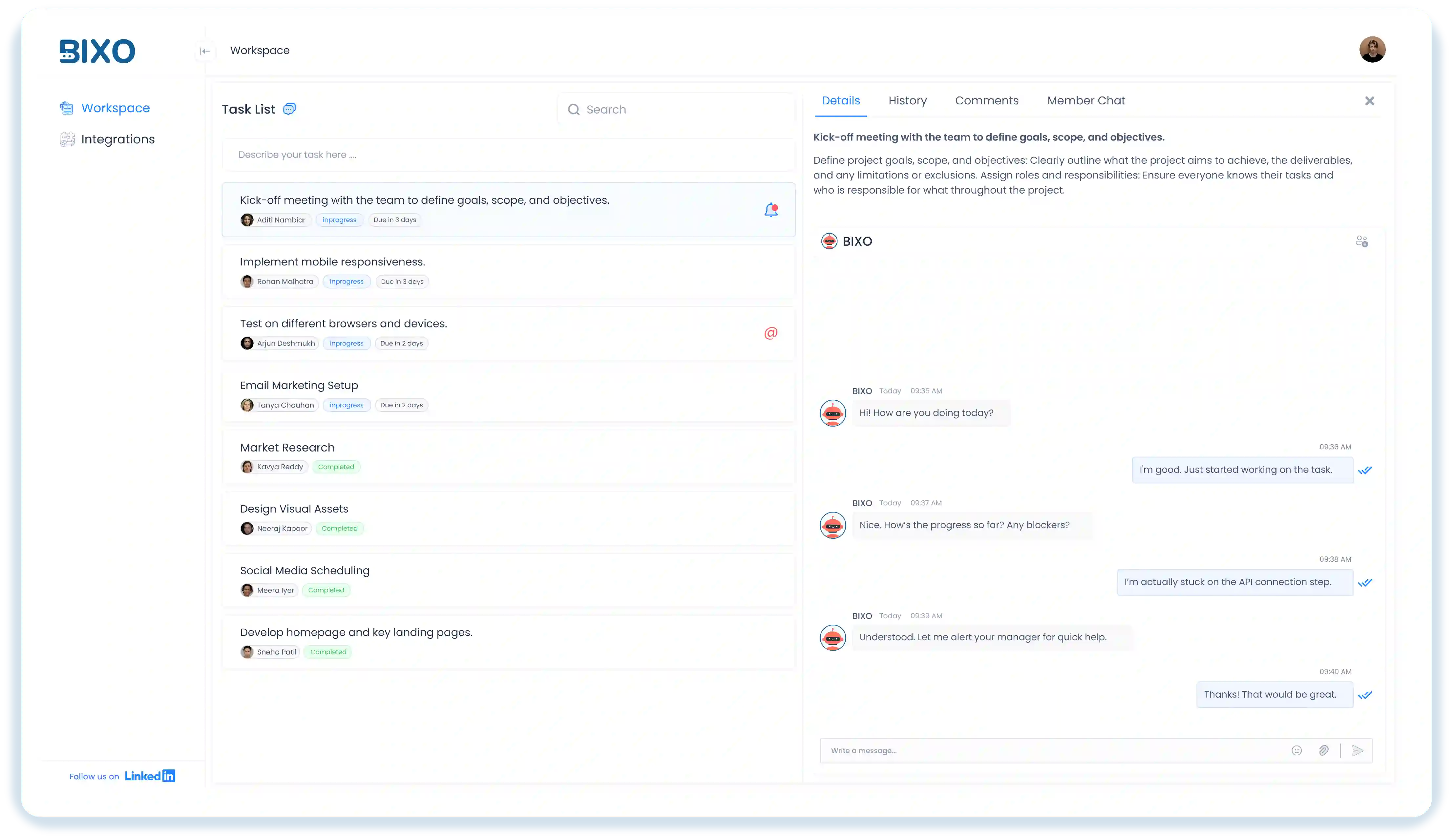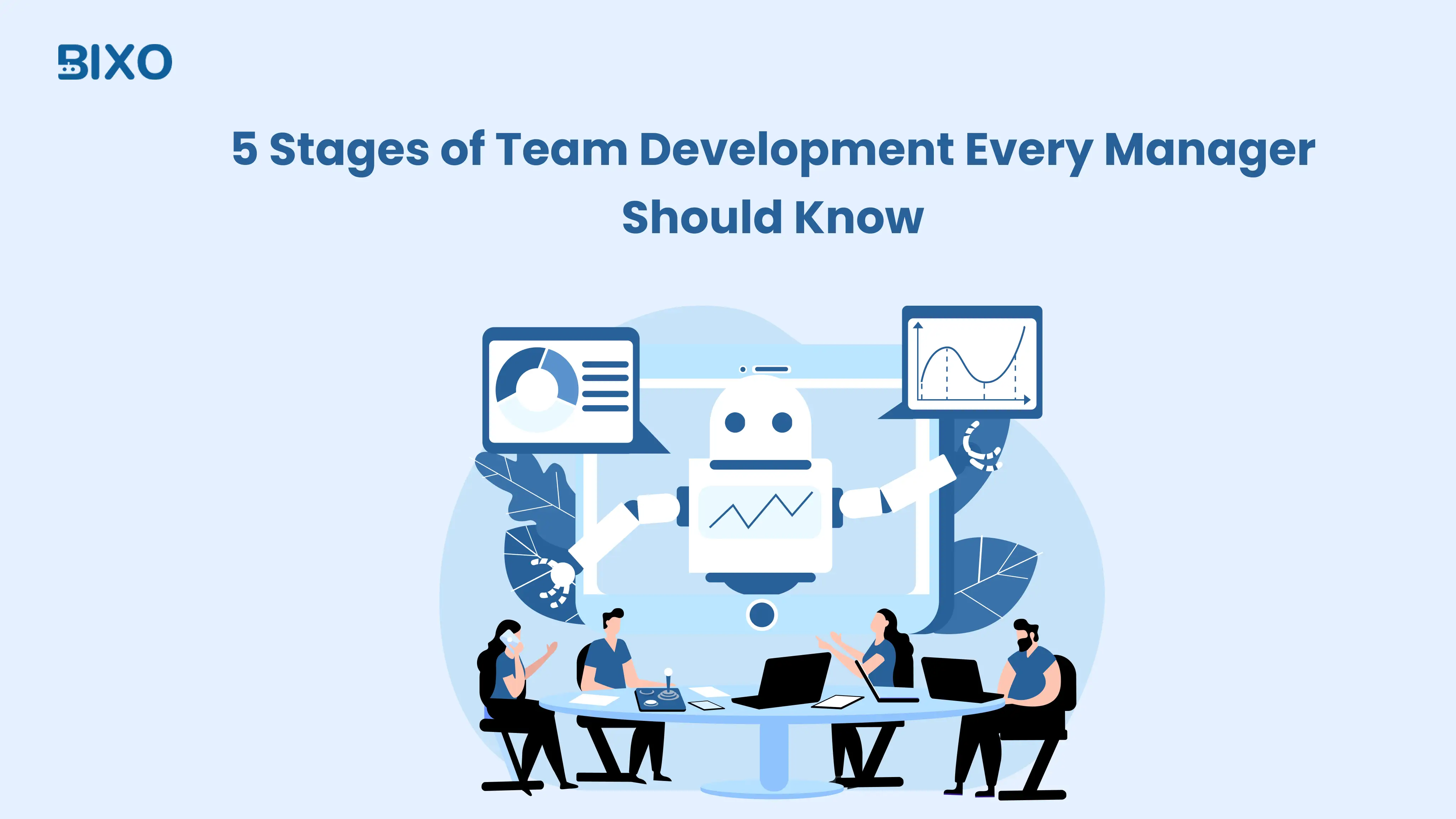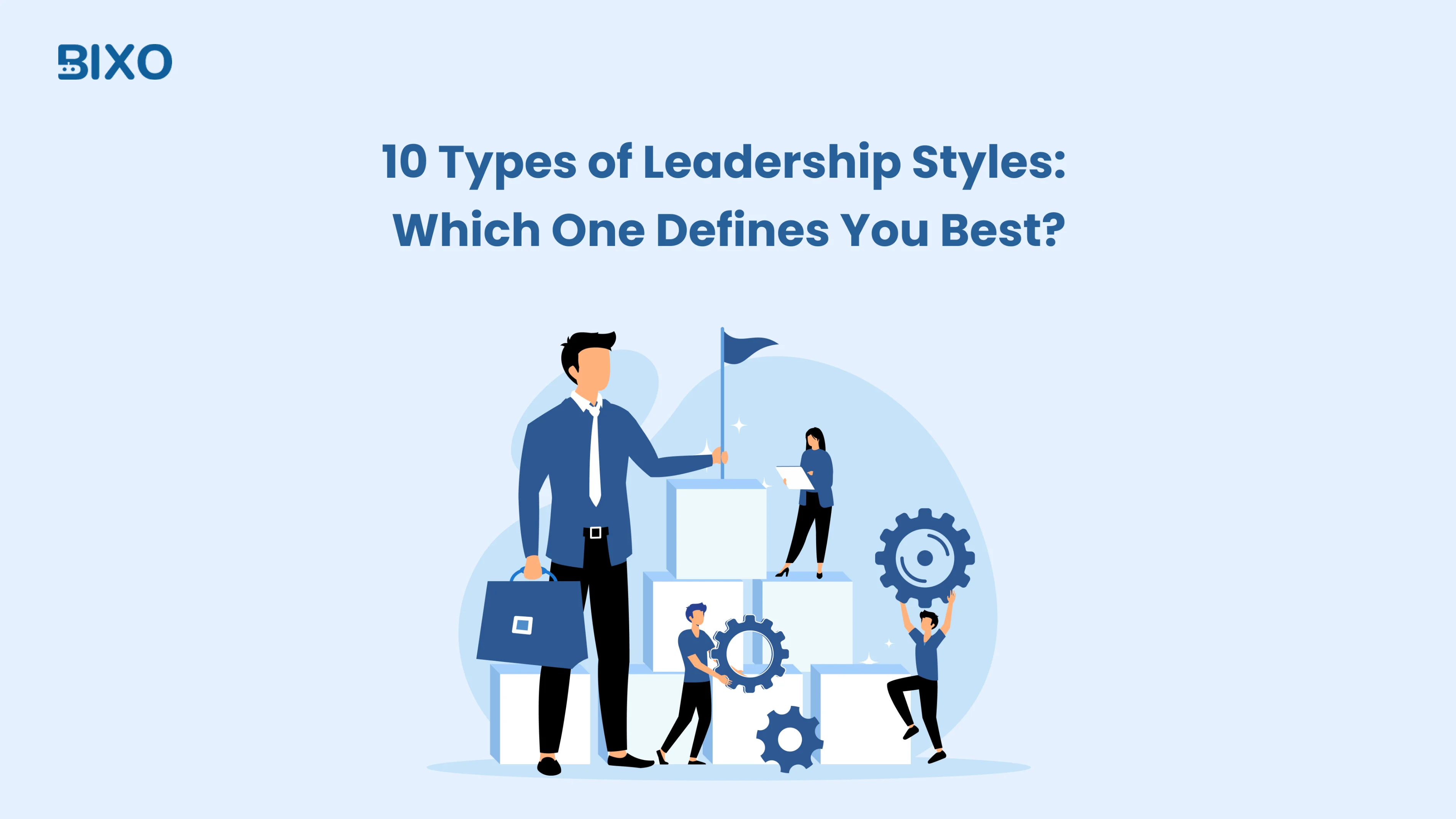
Table of Content
Focus on what matters. BIXO handles the rest!

Many people get promoted or asked to lead when they aren’t ready. They try hard, but things don’t go as planned, teams get confused, work slows, and trust fades. Without the right leadership skills, stress builds and mistakes happen. It’s easy to feel unsure. But here's good news: leadership isn’t something you’re born with. It’s something you can learn. In this blog, you’ll find the top 15 leadership must-have skills that will help you lead clearly and succeed no matter what your role is.
What Are Leadership Skills?
Leadership skills help you to guide and support others, making it easier to solve problems and make good decisions. Leadership is not just about a title. It’s about your actions. Great leaders listen, show respect, make honest choices, and set an example for the team to work better.
What Are the 15 Best Leadership Skills to Develop?
Building strong leadership skills helps you lead with confidence, earn trust, and support your team better. Here are the top 15 skills every leader should develop:
1. Communication
Good communication is one of the important management skills every leader must possess. A strong leader speaks and listens carefully, explains things in a way that everyone understands the context, helping the team make better progress.
2. Emotional Intelligence
Emotional intelligence means knowing your own feelings and the feelings of others. A good leader must stay calm in tough times and treat people with care. This builds trust, lowers stress, and helps the team feel respected.
3. Decision-Making
Good leaders make smart choices, even under pressure. They use open and effective communication to understand the situation. They look at the facts, listen to others, and make decisions quickly. Making the right choice at the right time can help the whole team.
4. Problem-Solving
Strong leaders do not panic when problems arise. They stay calm and see what went wrong. Then, they find smart ways to fix it. They focus on solutions instead of blame. This helps the team move forward.
5. Motivation
Great leaders inspire their team by showing support and celebrating small wins, and encourage others to keep going, even when things are tough. Their energy helps the team stay motivated and focused.
6. Relationship Building
Great relationships at work begin with trust and respect. Good leaders listen, show care, and stay honest. This helps the team feel safe, valued, and ready to work together. In a managerial role, strong relationships show the importance of leadership. Leadership development programs can help leaders build these skills and grow.
7. Strategic Thinking
Strategic thinking means looking ahead and planning for the future. It helps leaders see the big picture, set clear goals, and guide the team in the right direction. It’s about making smart choices that lead to long-term success.
8. Adaptability
Adaptability means being open to change. Good leaders adjust when things don’t go as planned. They stay calm, think fast, and help the team move forward, even in tough or new situations.
9. Delegation
Delegation means sharing tasks with others. A leader can't do everything alone, so they trust their team with the right jobs. This helps work get done faster and builds team confidence.
10. Conflict Resolution
Conflict happens in every team. It is important to lead calmly and fairly. Leaders listen to both sides, understand the situation, and then help the team move towards resolution with a proper understanding.
11. Integrity
Integrity means doing the right thing, even when no one is watching. Leaders with integrity are honest, fair, and keep their promises. This builds trust and respect across the whole team.
12. Innovation & Creativity
Creativity helps leaders to find new ways to solve problems. They listen to fresh ideas, try new approaches, and aren’t afraid to take big risks, which keeps the team growing and improving.
13. Time Management
Time management means using your time wisely. Great leaders plan out their day, determine what is really important, and stay focused. It keeps the team on track and achieves goals with no last-minute stress.
14. Coaching & Mentorship
Coaching and mentorship are all about helping others to grow. So it is important to share what you have learned, your guidance, and your support for the team members as they learn new skills.
15. Feedback & Active Listening
Great leaders listen closely and give helpful feedback. They pay full attention when others speak, and respond with care. This builds trust, clears up confusion, and helps everyone improve.
How to Develop Leadership Skills to Become A Great Leader?
Great leaders are made through learning and practising the correct skills. It is not something that comes immediately. It takes some time to develop. Here’s how to begin building your leadership skills:
Lead with Strong Core Values
To become a great leader, start with your core values. Honesty, respect, and fairness guide your choices and help others trust you. These are key leadership competencies. When your actions match your values, your team will follow your lead with confidence. This is the foundation of effective leadership and a sign of top leadership.
Build and Share a Clear Vision
Good leaders in a leadership role help people work towards one goal. Share a clear and simple plan so that everyone knows what they are working on. When people understand the goal, they stay focused and work better together. Use empathy to understand what your team needs, and resilience to guide them through tough times without losing direction.
Use Creativity to Overcome Challenges
Leaders face problems all the time. Use problem-solving skills to understand the issue. Try new ideas instead of old ways. Creative thinking helps you make good decisions and keeps the entire team moving forward. Strong leadership capability also boosts employee engagement and helps solve challenges within the team.
Balance Confidence with Humility
Leaders need to believe in themselves, but also be ready to learn. It’s okay to say, “I was wrong”. In tough times, confidence helps the team to stay stronger. Being humble helps you see your strengths and weaknesses. This makes you more trusted and helps the team work better together.
Strengthen Your Interpersonal Skills
Teamwork works best when people get along. Use important leadership skills like listening, speaking clearly, and being kind. These are strong communication skills. When people feel respected, they work better together. Building these skills helps in leadership development.
Commit to Lifelong Learning
You don’t stop learning once you become a leader. A leader must be able to grow, even during challenging times. Keep learning by reading, asking others, and trying new things. These skills enable you to lead better and prioritise what matters most.
Focus on Developing and Empowering Others
Leaders must make time to support their team and must know how to build trust among the team, and also provide some tools that help the team work better. An effective leader makes a workplace feel safe to share ideas. This psychological safety helps everyone do their best and grow together.
How BIXO Helps You Lead Smarter
BIXO isn’t just a productivity tool; it’s your leadership partner. It supports key leadership skills like clear communication, time management, decision-making, and team development.

Whether you're managing tasks, aligning goals, or supporting your team, BIXO helps you lead with clarity and purpose.
- It builds your decision-making skills so you can make informed decisions quickly and confidently.
- Tracking team performance and organising feedback in one place enhances your leadership qualities like accountability, transparency, and consistency.
BIXO also helps you create a healthy work environment where people feel supported. And by helping you stay organised, it gives you the space to be a more empathetic and empowering leader.
With BIXO, you're not just managing work, you're building a stronger and smarter team.
Conclusion
Great leaders aren’t born, they’re made through practice, reflection, and the right skills. By developing these 15 essential leadership qualities, you can guide your team with clarity, earn lasting trust, and grow in any role. It’s one of the best ways to improve your leadership skills and take your skills to the next level. Whether you're just starting or looking for a new way to develop leadership, these habits will help you lead with purpose. And with smart tools like BIXO by your side, you can stay organised, make informed decisions, and lead your team with confidence in every step you take.
FAQs
Start by listening more, taking responsibility for your actions, learning from feedback, and observing good leaders around you.
If people follow you, feel supported, and work efficiently, you are probably a good leader. Listening, maintaining clear communication, and taking consistent actions are strong signs of good leadership.
Adaptability is important in leadership because it helps leaders stay calm and flexible during changes. Adaptable leaders can handle unexpected situations and guide their team with confidence, keeping everyone motivated and on track.
Yes. Leadership is useful at the family level, in social groups, and for individual development. Skills like empathy, communication, and problem-solving apply everywhere.
Get a demo of BIXO
Recommended Blogs

SWOT Analysis: The Four Key Parts with Practical Examples
Want to make better business decisions? Learn the four parts of SWOT analysis: strengths, weaknesses, opportunities, and threats and how they help you see the full picture.
 Bhuvana Bitra |
Bhuvana Bitra |
 Oct 17, 2025
Oct 17, 2025

5 Stages of Team Development Every Manager Should Know
Explore the 5 stages of team development and see how you can guide your team at every step to build collaboration, trust, and stronger performance.
 Bhuvana Bitra |
Bhuvana Bitra |
 Oct 17, 2025
Oct 17, 2025

10 Types of Leadership Styles: Which One Defines You Best?
Learn 10 common leadership styles in a simple way, identify which suits you best, and learn how to grow into a more effective team leader.
 Jahnavi Chintakrindhi |
Jahnavi Chintakrindhi |
 Oct 17, 2025
Oct 17, 2025
